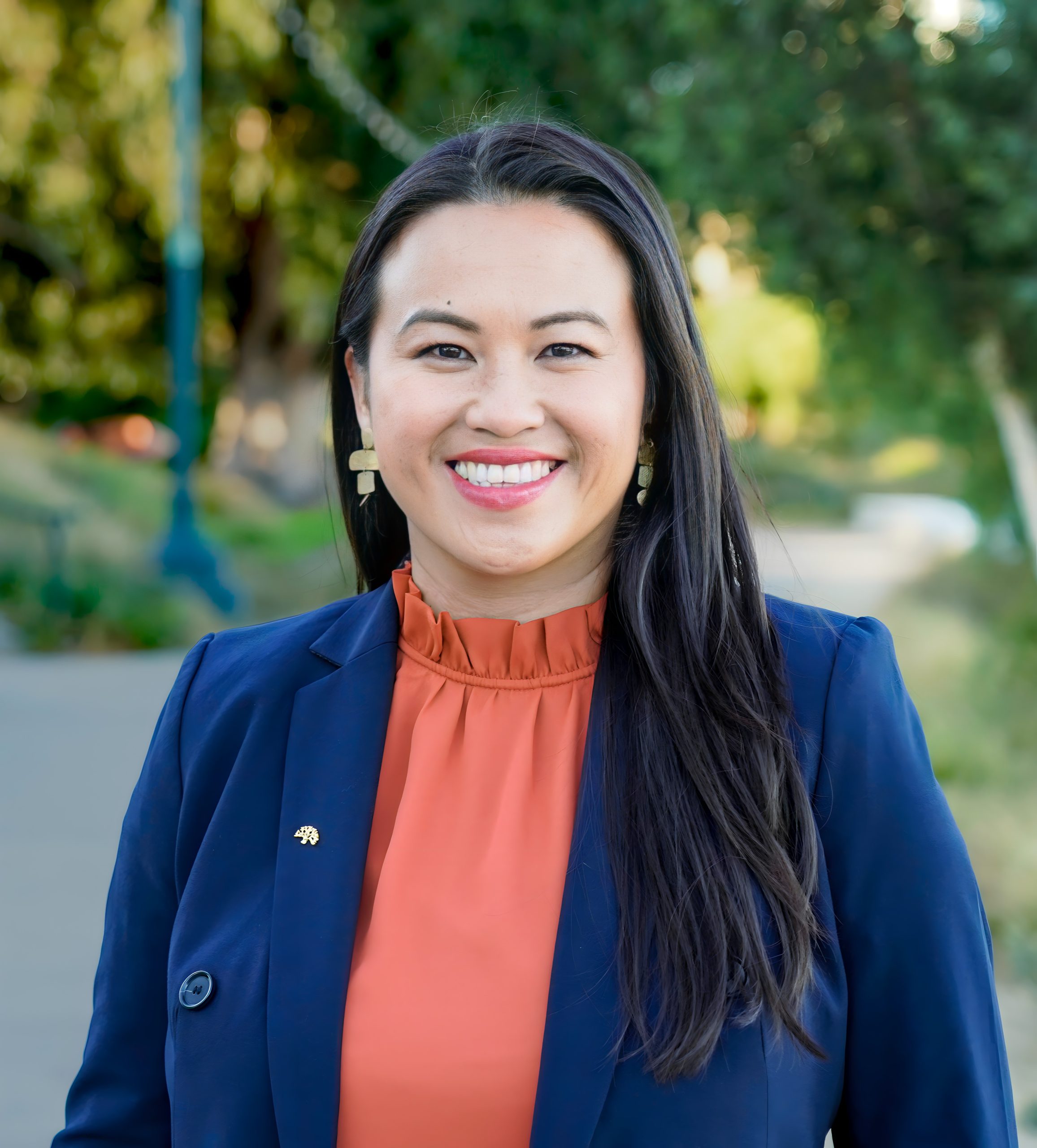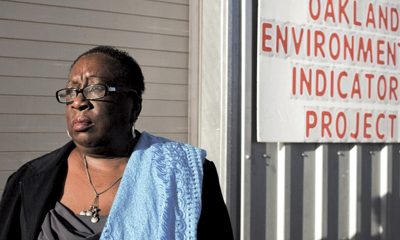Oakland A's
Texas Blanks Athletics for Second Straight Game, A’s Lose 5-0
Written by Jeff Weisinger and edited by Malaika Bobino
Oakland, CA – After the Texas Rangers celebrated their second-straight American League West title last night, the Oakland A’s had no defense for them today. The A’s looked nothing like the team that had beat them in their previous meeting.
Texas shortstop Elvis Andrus hit a pair of two-run homers to spark the Rangers 5-0 win over Oakland Saturday afternoon.
The shutout extends the A’s scoreless streak to 18 innings – they are 0-5 on the final homestead of the season beginning against the Houston Astros back on Wednesday. A big difference after going 6-1on their last road trip.
“We really had a good feeling coming in here and haven’t been able to sustain anything since we’ve been home,” Oakland’s manager Bob Melvin said. “We had one game where we scored some runs, but really it’s been the offense that’s held us back here at home, whereas on the road that wasn’t a problem at all.”
The results of the A’s final home stand is the complete opposite of their road trip last week, where they won six of their seven games, outscoring their opponents 61-23. Since their return home, they’ve been outscored 20-8. Oakland is also batting just .158 through the five games so far.
Rangers starter Yu Darvish, who’s struggled against the A’s with a lifetime 2-9 record and a 5.09 ERA in 13 career starts coming into today, pitched one of his best games of the season, striking out nine batters while allowing just a pair of hits through seven shutout innings.
“I felt pretty good,” said Darvish through his translator after the game. “I was able to throw a lot of strikes.”
Darvish allowed a single to designated hitter Stephen Vogt in the bottom of the first inning, however he bounced back quick, retiring the next 11 batters he faced. Yonder Alonso ended Darvish’s hitless streak with his one-out single in the fifth inning.

Photo by Eric Taylor
Oakland starter Raul Alcantara picked up his second loss of the season, allowing four runs on seven hits through six innings while striking out six and walking one. He surrendered both of Andrus’ home runs.
Alcantara mentioned that he was just as surprised with Andrus’ power and the two home runs he hit.
“He has a lot of bloopers,” he said about Andrus’ hitting.
“I thought I was pitching well,” Alcantara added. “It was two key pitches that were ineffective. I felt good. My pitches were good, those two pitches affected me, that’s what cost me today.”
Melvin agreed with his young starter.
“I thought he threw the ball well today,” he said in his post-game presser. “It ended up being two pitches for him. Fastball got over to Andrus and a changeup that sped him up. Other than that I thought he threw the ball well.”

Photo by Eric Taylor
Although the A’s struggled offensively, their best chance to show any signs of life came in the eighth inning. Two singles and a walk loaded the bases before Vogt flew out to center field, ending the threat to tie the game at four.
Oakland gave themselves another chance to score in the ninth inning when Khris Davis led off with a double to left field. Followed by Brett Eibner drawing a one-out walk. But both Marcus Semien and Matt McBride popped out to right field for the final two outs of the game.
The A’s will look to another young potential star pitcher to snap the five-game skid Sunday afternoon when Jharel Cotton (1-0, 1.50 ERA) takes the mound against Texas’ Colby Lewis (6-3, 3.40 ERA). First pitch is scheduled for 1:05 p.m.
Bay Area
Oakland Welcomes a New Baseball Team to Compensate for Oakland A’s Departure
Before a City Council meeting in early November, Mayor Sheng Thao held a rally with fans to call on the A’s owners to vote to stay in the Bay Area. In a show of solidarity, the City Council voted to approve a resolution that asserted its support for the A’s and appealed to MLB owners to keep the team rooted in Oakland. Despite the appeals, the owners decided to go ahead with their plan to move to Las Vegas, making this Oakland’s second major sports team since the Raiders exited in 2020 to play at Allegiant Stadium.

By Magaly Muñoz, Post Staff
The city of Oakland is welcoming a new baseball team, the Oakland Ballers, only weeks after the Oakland A’s unanimously decided to relocate to Las Vegas.
The team’s owners, Bryan Carmel and Paul Freedman, who refer to themselves as the Oakland B’s, held a press conference in late November to announce their new minor league team with the intention to “steal back Oakland’s baseball legacy.”
“In Oakland, sometimes we win, sometimes we lose, but we always bring it,” Carmel said.
Before a City Council meeting in early November, Mayor Sheng Thao held a rally with fans to call on the A’s owners to vote to stay in the Bay Area. In a show of solidarity, the City Council voted to approve a resolution that asserted its support for the A’s and appealed to MLB owners to keep the team rooted in Oakland.
Despite the appeals, the owners decided to go ahead with their plan to move to Las Vegas, making this Oakland’s second major sports team since the Raiders exited in 2020 to play at Allegiant Stadium.
Thao was present at the press conference, alongside others, including City Council President Nikki Fortunato-Bas and Oakland rapper Mistah F.A.B. There, she expressed her enthusiasm for the new sports team.
“The Ballers will be ambassadors for the town and demonstrate our spirit, hustle, and resilience to the world. Let’s play ball, Oakland!” said Thao.
The B’s will be a part of the Pioneer League, an independent baseball league that operates in the Rocky Mountain region of the United States. The team will play at Laney College starting May 2024.
Tyler Peterson, assistant general manager for the B’s, said the team coming to Oakland brings opportunities for everyone involved.
Ball players who weren’t drafted straight out of college or who did get drafted but aren’t performing up to expectations have the opportunity to join the B’s and build up their skills with the team.
“We want to be able to offer them [players] high visibility, opportunities to get themselves in front of Major League scouts,” Peterson shared.
Peterson told the Post that nine players have already been signed onto the team, and over 60 inquiries have come through from players all over the country. The names of the players will soon be announced to the public soon.
The B’s will have one of the lowest contract buyouts for players in the league — $5,000 — making it more enticing for major league teams to scout players from their roster. Peterson revealed that the Ballers also intend to give back to the community by donating a portion of the buyout money to local charities.
Oakland sports has taken massive hits over the last decade, with major teams relocating one after the other. The Golden State Warriors moved in 2019 to Chase Stadium in San Francisco, the A’s are set to leave as early as 2025, and the Raiders left in 2020. Oakland was among several cities considered for a WNBA expansion team but was also passed up in favor of San Francisco.
Peterson said they reject the idea that Oakland isn’t a pro-sports town, and although they can never replicate the A’s impact, he affirmed that the B’s are here to stay for good.
“We aren’t going to dictate to the fans what we are because we’re supposed to be for Oakland by Oakland,” Peterson explained. “We want this to be something for Oakland to celebrate and something that we all need.”
Peterson revealed that the team has received an overwhelmingly positive response since their announcement, and they are excited to get started.
The B’s have secured $2 million in seed funding from investors, and fans will have the opportunity to become part owners of the team through a public crowdfunding campaign.
The Oakland Ballers‘ inaugural home game is scheduled for June 4, 2024.
Bay Area
Mayor Thao, Rebecca Kaplan Back Resolution Endorsing Barbara Lee’s “Moneyball Act” Legislation
On June 28 the Oakland City Council will vote on Mayor Sheng Thao and Councilmember Rebecca Kaplan’s resolution in support of Congressmember Barbara Lee’s “Moneyball Act” legislation at the 3:30 p.m. Special Council meeting. The Moneyball Act would require any professional baseball club that relocates more than 25 miles from its previous location to compensate the state and local authorities they relocate from; and subject Major League Baseball (MLB) to Anti-Trust Laws if professional baseball clubs do not comply.

On June 28 the Oakland City Council will vote on Mayor Sheng Thao and Councilmember Rebecca Kaplan’s resolution in support of Congressmember Barbara Lee’s “Moneyball Act” legislation at the 3:30 p.m. Special Council meeting.
The Moneyball Act would require any professional baseball club that relocates more than 25 miles from its previous location to compensate the state and local authorities they relocate from; and subject Major League Baseball (MLB) to Anti-Trust Laws if professional baseball clubs do not comply.
“The Moneyball Act will ensure that no city and community is left behind when billionaires decide that Lee. “The Oakland Athletics have been an institution of the East Bay for over half a century. I want to thank Mayor Thao and Councilmember Kaplan for supporting our federal efforts to keep the A’s rooted in Oakland and for their commitment to our community.”
The current antitrust exemption granted to MLB is a direct result of the unique value that individual sports teams bring to their communities. However, the incentivization of professional baseball clubs to leave their home cities and relocate to other markets has raised questions about the continued validity of the legal and public policy bases for MLB’s antitrust exemption.
“I commend Congressmember Barbara Lee for defending the rights of communities like Oakland, along with many others across the nation, that are struggling to fight corporate greed in sports. The Moneyball Act will rectify Oakland’s current situation by ensuring fair compensation as a result of losing revenue, jobs, and commerce should the A’s relocate, Councilmember Rebecca Kaplan states.
As the Councilmember who represents the entire city of Oakland and Chair of the Oakland-Alameda County Coliseum Authority, we have worked diligently to bring about a thriving future, including sports, entertainment, job opportunities, and more. This includes providing substantial opportunities for the A’s. Communities, taxpayers, workers, and fans all deserve to be treated with respect,” said Kaplan.
The relocation of clubs to new cities can sever the bonds established between franchises and their communities, leading to adverse economic effects and a loss of revenue, jobs, and commerce for the former host communities.
As demonstrated in the relocation of the Oakland Athletics (A’s), which was supported and encouraged by MLB, there are deep and inequitable impacts on the local community, especially the East Oakland community where the A’s have called their home for 50 years.
Thao states: “The A’s have been a treasured part of the Oakland community for more than a half century, and the City and fans have repeatedly shown our commitment to keeping the A’s ‘rooted in Oakland.’ That history and deep commitment shouldn’t be thrown aside lightly.”
Bay Area
Oakland Mayor Thao, Councilmember Kaplan Announce Resolution in Support of Representatives Lee and DeSaulnier’s ‘Moneyball Act’ Legislation
Mayor Sheng Thao and Councilmember Rebecca Kaplan announced their resolution in support of Congressmembers Barbara Lee and Mark Desaulnier’s “Moneyball Act” legislation that would require any professional baseball club that relocates more than 25 miles from its previous location to compensate the state and local authorities they relocate from; and subject Major League Baseball (MLB) to Anti-Trust Laws if professional baseball clubs do not comply.

Mayor Sheng Thao and Councilmember Rebecca Kaplan announced their resolution in support of Congressmembers Barbara Lee and Mark Desaulnier’s “Moneyball Act” legislation that would require any professional baseball club that relocates more than 25 miles from its previous location to compensate the state and local authorities they relocate from; and subject Major League Baseball (MLB) to Anti-Trust Laws if professional baseball clubs do not comply.
On Thursday day, the Rules and Legislation Committee approved the resolution to be scheduled for a vote at the June 28 City Council meeting.
The current antitrust exemption granted to MLB is a direct result of the unique value that individual sports teams bring to their communities.
However, the incentivization of professional baseball clubs to leave their home cities and relocate to other markets has raised questions about the continued validity of the legal and public policy bases for MLB’s antitrust exemption.
The relocation of clubs to new cities can sever the bonds established between franchises and their communities, leading to adverse economic effects and a loss of revenue, jobs, and commerce for the former host communities.
As demonstrated in the relocation of the Oakland Athletics (A’s), which was supported and encouraged by MLB, there are deep and inequitable impacts on the local community, especially the East Oakland community where the A’s have called their home for 50 years.
Councilmember Rebecca Kaplan stated: “I commend Congressmembers Barbara Lee and Mark DeSaulnier for defending the rights of communities like Oakland, along with many others across the nation, that are struggling to fight corporate greed in sports.
“The Moneyball Act will rectify Oakland’s current situation by ensuring fair compensation as a result of losing revenue, jobs, and commerce should the A’s relocate,” she said.
“As the Councilmember who represents the entire City of Oakland and chair of the Oakland-Alameda County Coliseum Authority, we have worked diligently to bring about a thriving future, including sports, entertainment, job opportunities, and more,” Kaplan said. “This includes providing substantial opportunities for the A’s. Communities, taxpayers, workers, and fans all deserve to be treated with respect.”
Mayor Sheng Thao states: “The A’s have been a treasured part of the Oakland community for more than a half century, and the City and fans have repeatedly shown our commitment to keeping the A’s ‘rooted in Oakland.’ That history and deep commitment shouldn’t be thrown aside lightly. Once again, Congressmembers Lee and DeSaulnier are bringing plain common sense to the table, and we appreciate their steadfast support.”
From the media relations offices of Oakland Mayor Sheng Thao and City Councilmember at-Large Rebecca Kaplan.
-

 Activism4 weeks ago
Activism4 weeks agoOakland Post: Week of March 27 – April 2, 2024
-

 #NNPA BlackPress4 weeks ago
#NNPA BlackPress4 weeks agoFrom Raids to Revelations: The Dark Turn in Sean ‘Diddy’ Combs’ Saga
-

 #NNPA BlackPress4 weeks ago
#NNPA BlackPress4 weeks agoCOMMENTARY: D.C. Crime Bill Fails to Address Root Causes of Violence and Incarceration
-

 #NNPA BlackPress4 weeks ago
#NNPA BlackPress4 weeks agoCOMMENTARY: Lady Day and The Lights!
-

 #NNPA BlackPress4 weeks ago
#NNPA BlackPress4 weeks agoMayor, City Council President React to May 31 Closing of Birmingham-Southern College
-

 #NNPA BlackPress4 weeks ago
#NNPA BlackPress4 weeks agoBaltimore Key Bridge Catastrophe: A City’s Heartbreak and a Nation’s Alarm
-

 #NNPA BlackPress4 weeks ago
#NNPA BlackPress4 weeks agoBaltimore’s Key Bridge Struck by Ship, Collapses into Water
-

 #NNPA BlackPress4 weeks ago
#NNPA BlackPress4 weeks agoBeloved Actor and Activist Louis Cameron Gossett Jr. Dies at 87





















































